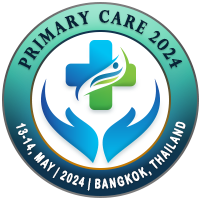.jpg)
Ibrahim F. Elgehani
University of Benghazi, LibyaTitle: First aid guidelines for fragile contexts (conflict, disaster and remote areas): Contextualization & Adaptation
Abstract
In situations of remoteness to medical care, disaster or conflict, first aid provision is important but complex and challenging. This paper explores and reviews the educational approach and adaptations recommended by the 2020 IFRC First Aid, Resuscitation and Education Guidelines.
Adaptation: In order to be effective, first aid educators need to adjust both the skills and way of teaching to the realities of the context. In particular:
• safety and security of the first aider and the person requiring help should be prioritized over providing care
• improvisation of tools and equipment is likely to be necessary, including transportation
• psychological well-being of the first aider must be included as part of their training
Discussion: ‘Guidelines’ tend to be interpreted as ‘rules’, yet in the context of first aid, in particular, it is important to understand that the scientific ideal might be neither possible nor appropriate. In fragile contexts such as those mentioned here, adaptation to the realities faced by the learner is crucial. It is the role of guidelines and those teaching them to give learners the permission and confidence to act as best they can and provide options for delivering alternative care where resources or circumstances are limiting.
Conclusions: The specific circumstances of armed conflict, disasters, and remote settings will require first aid educators and first aiders to adapt the scientific evidence of the first aid guidelines to their realities. Important, but not yet explicit enough in the new guidelines, is the permission needed to be given to first aid educators to create an authentic, intelligent, and humanitarian approach to first aid learning. The goal is to encourage people to be creative and adapt to harsh realities using available resources without being distracted by theories that they cannot apply.
Biography
Ibrahim Elgehani an intern doctor, finished medical school at the University of Benghazi. He has more than 6 years of professional experience working in the humanitarian sector, he was the Head of the health department for the Libyan Red Crescent Benghazi branch for 6 years working with local partners through armed conflicts, natural disasters, and a pandemic to provide primary healthcare to displaced people, rural areas and areas affected by armed conflicts.
He also has experience in the field of national social development and resource mobilization.
Currently, he is the communication officer within the International Journal of First Aid Education, encouraging academics, students, and humanitarians to conduct original research in the realms of community-based health, first aid guidelines, and first aid education. He also works to disseminate evidence-based first-aid guidelines to be used within the region.

